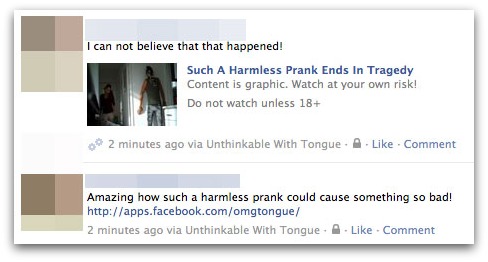Have you ever clicked on suspiciously salacious videos or links from your Facebook friends, only to find out that it leads you to a website full of naughty images and pop-up windows? Chances are, your friend wasn’t posting porn intentionally; their account was hacked and posting links to websites filled with viruses that then infect your computer, ransack your Facebook account, and perpetuate the viral machine.
To protect users, engineers at the University of California, Riverside have created an app that flags hacker-created posts. After analyzing a massive dataset of 40 million posts from 12,000 users who installed the app, MyPageKeeper was found to correctly identify 97 percent of malicious posts.
“In many ways, Facebook has replaced e-mail and web sites. Hackers are following that same path and we need new applications like MyPageKeeper to stop them,” said professor of Computer Science, Michalis Faloutsos. Faloutsos found that nearly half (49 percent) of Facebook users are exposed to so-called social-malware (“socware”) with posts from their friends like “OMG OMG see this video.. WOW!”.
MyPageKeeper scans posts for words such as “FREE,” “Shocked,” and”Hurry” and found that posts using six of 100 keywords were sufficient to catch most socware. Interestingly, posts with fewer “likes” and comments are more likely to be socware, as users seem to be getting more savvy when it comes to spotting suspicious images themselves (and, once they click on the link, they know it was bogus and have no reason to “like” it).
An easy way to detect socware manually is to check the URL that is displayed at the bottom of the browser as the mouse hovers over a link, to determine whether it is from a reputable source or Facebook itself. Shortened URLs are often used to disguise malicious links.
You can get MyPageKeeper here.
